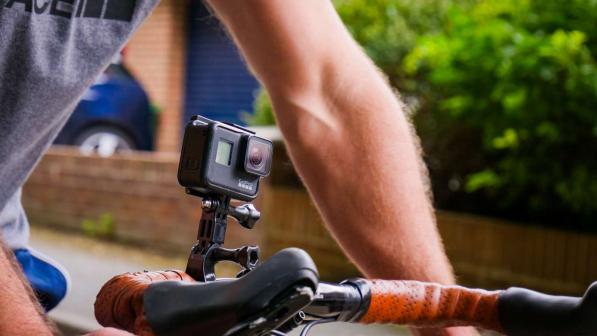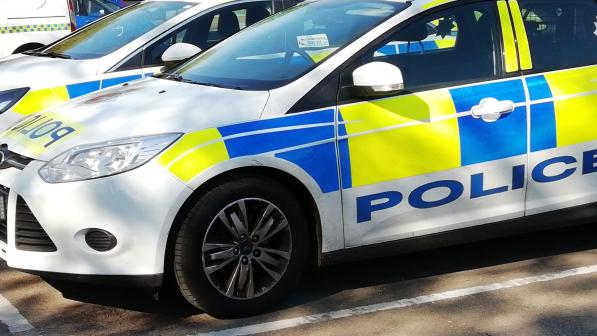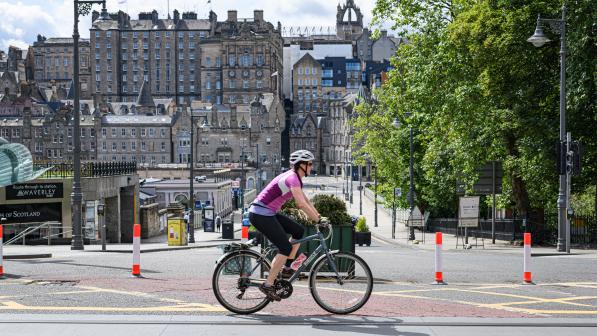Cycling UK demands reform after assaulted cyclist warned for swearing

As David Brennan cycled to work in Glasgow on a wet day in October 2019, wearing his helmet camera as he always does, he encountered a queue of slow-moving traffic. As he filtered up the inside of the queue, one driver appeared to take exception to this, accelerating to within inches of David’s rear wheel.
Instinctively, David reached out a hand to protect himself. What happened next was a blur:
“I thought I was in danger and reacted to the fast approaching vehicle by slapping the bonnet with the palm of my hand. The driver got out and was incredibly aggressive, hurling abuse at me. He pushed me and then punched me in the face. I was left with a swollen lip and in a state of shock.”
The whole incident lasted less than a minute, but had a big impact on David’s life over the next seven months and beyond.
* WARNING: THE FOOTAGE BELOW CONTAINS VIOLENCE AND VERY STRONG LANGUAGE *
David reported the incident to the police when he got to work, explaining that he had video footage from front and rear facing cameras, plus a witness from the driver of the vehicle behind who confirmed that the other driver appeared to have driven at David
The shock of the incident left David feeling uneasy on his commute, particularly worrying about coming across the same driver again. He did however expect the police to take swift action.
“I felt sure, given the very clear footage and the availability of a witness, that the police would take the incident very seriously.”
Having not heard anything after a month, David chased up the police at least five times over several weeks. Eventually, the news came and it wasn’t good. The driver had only been given a written warning.
“I felt angry and let down,” David explained. “I had been driven at, abused, pushed and punched in the face, and the driver was only given a warning? That’s not justice.”
David posted the video and outcome of the incident online, with many people expressing their shock at the failure to protect a vulnerable road user.
Broadcaster Jeremy Vine even shared the video, saying: “This is just incredible. A warning?”
Shortly afterwards, David received a call from the police. They’d seen the video online and were going to investigate ‘further criminality’. Perhaps a proper charge for the driver after all?
All went quiet for several months. Then, in a 10pm visit to David’s home, the bombshell. “We are here to give you an official warning for contravening Section 38 (Breach of the Peace).”
Under S.38 of the Criminal Justice and Licensing (Scotland) Act 2010, someone commits an offence if:
- they behave in a threatening or abusive manner,
- the behaviour would be likely to cause a reasonable person to suffer fear or alarm, and
- they intend the behaviour to cause fear or alarm or are reckless as to whether it would.
Following an incident which David believed was dangerous driving, which led to him being punched, David had sworn. Now the police were giving him a written warning stating that he ‘Did shout and swear causing fear to others’. He was stunned.
“I was honestly shaken to the core. Under pressure, late at night and with no advice at hand, I felt that I had to accept the warning.
“The officers didn’t care that any swearing and shouting was a reaction to being endangered and assaulted. The warning belittled the effect that this incident had on me and has left me feeling self-doubt and anger ever since.”
After receiving advice from Cycling UK and Cycle Law Scotland, and with Cycling UK committed to covering legal costs through its' Cyclists’ Defence Fund if he was prosecuted, David was convinced that he had to fight the warning:
“Appealing was risky, as it could lead to a court case and conviction, but I could not let this pass. Even just on principle I had to appeal.”
Seven very stressful months later, David was informed that the case had been dropped as it was ‘disproportionate’.
So what next?
David is determined to find out why the police felt a warning for this driver was sufficient and why he – the victim – was issued with a warning for Breach of the Peace.
More than that, he wants to change the system to ensure others don’t experience what he went through:
“Now is the time to call for action in Scotland. I’ve spoken to many, many other cyclists who’ve had bad experiences with the police. Some police in certain areas have stated that if you aren’t hit, they won’t prosecute.
“It requires political will from the Scottish Government to ensure that all vulnerable road users are protected by a justice system that properly protects those who have little protection themselves.
“It also requires Police Scotland to re-examine how they deal with incidents such as this, and how their procedures can be improved in the future.”
Dangerous incidents reported to the police on the road must be dealt with fairly and they must recognise that people who cycle are vulnerable road users
Jim Densham, Cycling UK
Jim Densham, Cycling UK’s policy and campaigns manager in Scotland, said: “David’s experience on the road that morning must have been frightening and the shock compounded by his subsequent treatment. Too often we hear of people who are out enjoying a cycle ride but experience a dangerous situation through no fault of their own.
“Dangerous incidents reported to the police on the road must be dealt with fairly and they must recognise that people who cycle are vulnerable road users. We believe that helmetcam and dashcam technology can help the police do their job and that’s why we are calling for Police Scotland to introduce a straightforward system which enables anyone to submit this footage.”
Cycling UK is collaborating with David to ask for three actions from the Scottish Government and Police Scotland:
- A commitment from Police Scotland to prioritise road traffic enforcement where vulnerable road users are at greatest risk.
- Improved guidance to ensure that all force areas across Scotland deal with reports from vulnerable road users in a consistent and appropriate way.
- A single easy to use camera footage submission system which all road users can have confidence in.
Such measures would not only help to improve road safety for cyclists, but for all road users.
Cycling UK and David are now seeking meetings with the Scottish Justice Minister Humza Yousaf, senior Police Scotland officers and senior officials from Transport Scotland to discuss how the three asks can be met and real justice for Scotland’s vulnerable road users achieved.








